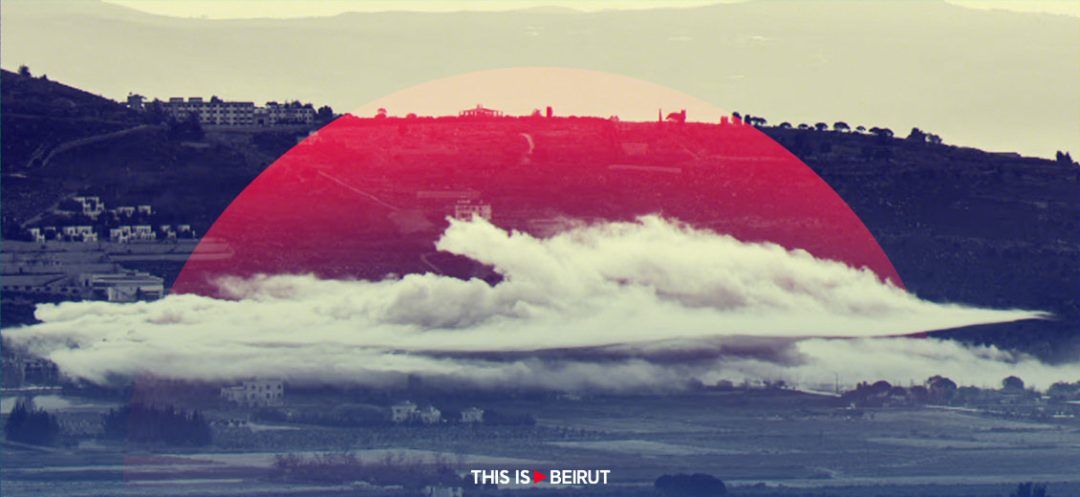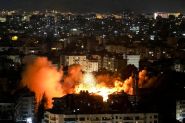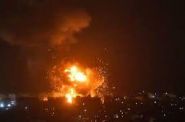- Home
- War in the Middle East
- Will the War in Southern Lebanon Expand?

The main question on every Lebanese citizen’s mind since the Al-Aqsa Flood operation on October 7—which led to a political and military operation of seismic magnitude in Gaza—revolves around the nature of the conflict unfolding in southern Lebanon, where Hezbollah engaged Israel the following day. The key concern is whether it will escalate or remain at its current intensity, marked by certain "transgressions," so to speak, on both sides of the border.
Within Israel, political and military viewpoints vary between those advocating for an attack on Hezbollah and capitalizing on the international political support Israel gained following its devastating war on the Gaza Strip, on one hand, and, on the other, those calling for restraint, highlighting the complexities involved in opening a new front and the human, economic and military losses that would be sustained.
Israel is fully aware that Hezbollah's military and missile capabilities surpass those of Hamas. Furthermore, Israel acknowledges that the destruction of Lebanon and Beirut would not necessarily result in the eradication of Hezbollah and its enormous capacities. But doing so might alleviate some of the historical animosity that the Israeli entity harbors towards Lebanon given its pluralism and diversity, as opposed to Israel's mono-ethnic background, where the Jewish identity has historically dominated over other ethnicities.
As such, if Tel Aviv can guarantee the success of any new military operation in Lebanon, one that it could leverage internally—especially in light of its unsuccessful military operation in Gaza that failed to attain its stated objectives—it will undoubtedly not shy away from such an undertaking. Another factor is linked to the significant presence of right-wing members in the current Israeli government.
But even though Israeli air superiority is backed by immense destructive capabilities, as witnessed in Gaza over the past three months, this does not systematically translate into a military victory. The objectives outlined by Israeli Prime Minister Benjamin Netanyahu since the onset of the Gaza conflict—namely the elimination of Hamas and the halting of its rocket-launching capabilities towards occupied areas—have not been fully realized. Furthermore, the issue of prisoner-hostage exchange has only been partially addressed through a Qatari-Egyptian-American-brokered deal, and not through the war as such.
Does all of the above imply that the conflict in southern Lebanon will remain within its undeclared limits? Despite its intensity, the situation has still not evolved into a full-fledged war. However, there is no guarantee that this will remain so, despite Washington's considerable efforts to prevent the conflict from expanding further. Moreover, Iran’s stance is clear: in line with its own strategic considerations, it opposes any escalation or broadening of the conflict.
Nonetheless, there is deep concern over the potential reevaluation of strategic calculations by the key players—Israel and Hezbollah—and their regional and international backers—the United States and Iran—at which point unfolding developments may take an unpredictable turn, regardless of the delicate considerations that have been steering the conflict so far.
In Lebanon, some believe that Hezbollah’s military strength (regardless of its implications on the Lebanese state) has successfully maintained a balance of deterrence with Israel. Such deterrence has kept the border with Israel relatively calm since the July 2006 war, despite occasional Israeli air and ground violations.
Others consider that the enduring stability in South Lebanon over the years stems from United Nations Resolution 1701. The resolution not only laid the groundwork for a new framework to run the area while taking Lebanese national interests into consideration, but it also emphasized that the security of the southern region should not be compromised by tampering with the resolution. According to this viewpoint, Lebanon's safety lies in an unwavering commitment to international legitimacy.
Past experiences warrant fresh scrutiny, scrutiny that will provide an opportunity to seriously explore new ways to defend Lebanon without conceding to Israel and without undermining the essence of the state. This involves upholding the state's right to be the sole authority responsible for defending its territories and the one deciding on war and peace. Until such a reevaluation materializes, the need to address the acute political divisions among the Lebanese at this crucial juncture in Lebanon's modern history is essential.
Read more




Comments